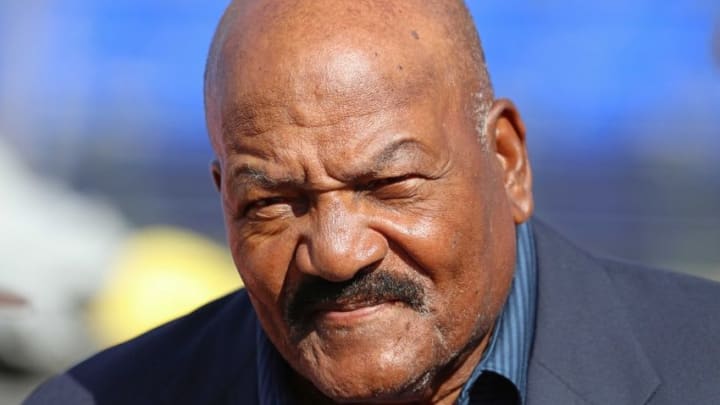Does the NFL have an equivalent to match who Muhammad Ali was and what he meant to boxing and indeed the entire athletic realm?
Ali, perhaps the greatest boxer of all-time and an icon who changed how people view professional sports is dead at age 74. Born Cassius Clay in 1942 Louisiana, he rose to stardom by winning an Olympic gold medal in 1960, developing one of the most unforgettable mouths in television history, fighting three of the most unbelievable fights in history (all against the same man) and becoming the first ever to win three heavyweight championships in his career. On top of that, he took on the U.S. government over his rights to avoid fighting a war he didn’t believe in and sacrificed what was the prime of his professional career to do so.
Writer Jerry Izenberg said it best in his recent column.
"“I have been in this business more than 60 years and shared time with most of the great ones — Pele and Joe Louis, Joe DiMaggio, Ted Williams and Mickey Mantle, with Joe Willie Namath and Vince Lombardi, and even Jim Thorpe in his declining years. But in all that time, I never knew an athlete who could stop a room, a building or even a city street dead in its tracks, the way Muhammad Ali could and did.”"
There are few singular sports personalities who were even close to as memorable as Ali, which begs the question. Are there any in NFL history who can compare?
Plenty come to mind when trying to fit the mold. Wide receiver Terrell Owens was certainly as unique and blustering a personality with every bit of the talent to back up his words. For a long stretch he was the best in pro football at what he did, setting records and showing a heart too few people appreciated about him such as playing a Super Bowl on a broken leg. Peyton Manning wasn’t as outspoken off the field, but he showcased his individual greatness on every Sunday. He was the first quarterback to win five MVP awards, retired with every major passing record, developed an unforgettable rivalry with another fellow great and like Ali showed that just when everybody thought he had nothing left he reached down into the well for something extra to surprise them.
However, if there was a player who came the closest to fitting both Ali’s dominant stature as an athlete, distinctive personality and ability to thrive in a country that was not tailored to his personal success it would have to be Jim Brown.
The fact that the two became very good friends during the height of their respective careers may seem somewhat biased for this choice, but the reality is they probably drew close to each because they were so alike. Brown too is still widely considered one of the greatest football players who ever lived. At his peak in the early 1960s, NFL coaches literally designed entire defensive schemes built around stopping just him. Nobody had ever seen an athlete with his mix of power, speed, toughness and determination before.
In an era where America was still deeply segregated and divided on racial tones, Brown built a career that people still talk about with glowing admiration. He was a man who marched to the beat of his own drum, often defying his own legendary head coach Paul Brown when he didn’t like something and showing a competitiveness that few people seemed to grasp because of his often stoic demeanor.
He didn’t have the outspoken nature of Ali, but he still found a way to create controversy when he chose to abruptly retire at the age of 29. From there he broke new ground when he got into acting, hitting it big on the unforgettable movie “The Dirty Dozen.” Prominent columnist Mike Freeman of Bleacher Report dubbed him the “first black action hero.”
What makes him so alike with Ali, aside from the accomplishments as an athlete is the fact that decades later almost everybody still knows his name. That is the kind of impact he had on the psyche of a nation. Other great running backs have come and gone since he left the game, but all are compared to him because he set an entirely new standard so high that most may never reach it.
If any NFL player has earned the title of “The Greatest”, it would be Jim Brown.
